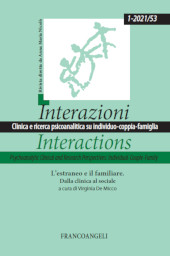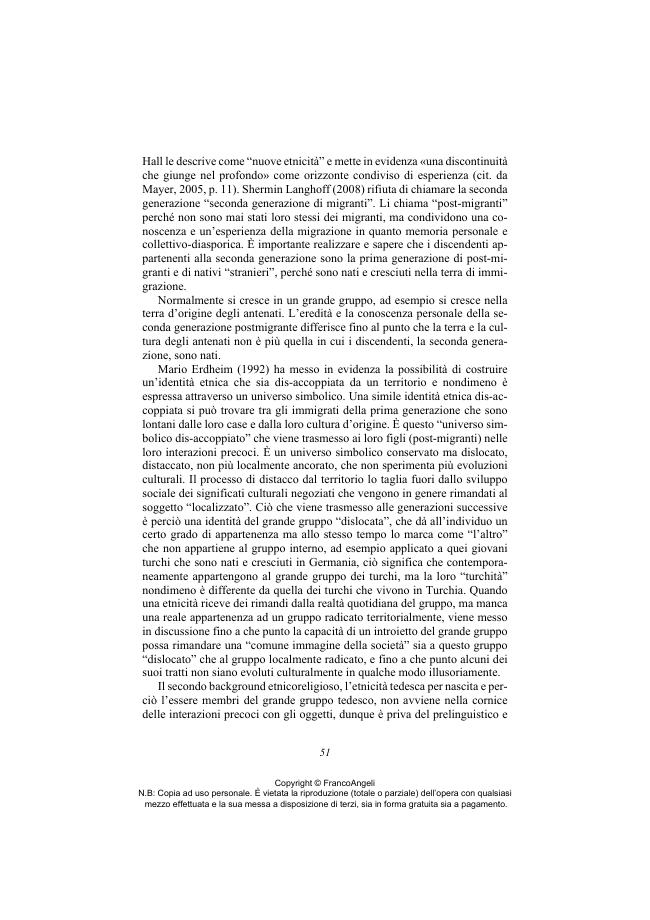La formazione dell'identità nell'interazione tra culture
43-58 p.
La formazione dell'identità dei bambini che sono cresciuti entro due o più background culturali è caratterizzata da un ampio spettro di identificazioni divergenti. Questo ha un impatto specifico sulla loro struttura psichica, visto che ci sono identificazioni con almeno due background etnicoreligiosi e due grandi gruppi, che possono interferire col sentimento di appartenenza. Con riferimento ai concetti di formazione dell'identità (Erikson), identificazione (Freud), identificazione col gruppo interno e col gruppo esterno e l'emergenza di un oggetto interno (Davids, Volkan), viene proposto lo svolgersi dello sviluppo di un'identità ibrida e diasporica con almeno tre introietti gruppali per i membri della terza generazione che sono sottoposti a una socializzazione biculturale. La formazione di un'identità ibrida rende l'Io capace di legare assieme complesse affiliazioni culturali, in modo tale che il soggetto possa sentirsi identico a se stesso nello spazio, nel tempo e nei luoghi.
Allo stesso tempo, tutto ciò richiede che il dolore e la destabilizzazione associati al fatto di non avere ciò che originariamente era visto come formazione identitaria, ovverosia il sentimento di appartenere a uno ed uno solo grande gruppo, possa essere tollerata e accettata. [Testo dell'editore].
The identity formation of children who are brought up within two or more cultural backgrounds is characterised by a wide range of divergent identifications. This has a specific impact on the characteristics of the psychic structure as there are identifications with at least two ethnoreligious backgrounds/large groups, who may interfere with the feeling of belonging. On behalf of the concepts of identity formation (Erikson) identification (Freud), ingroup/outgroup identification and the emerge of an inner object (Davids, Volkan) the course of a diasporic hybrid identity development with at least three group introjects is proposed for the members of the third generation who undergo bicultural socialisation.
The hybrid identity formation will enable the ego to in linking together complex cultural affiliations in such a way that the subject feels identical with itself across space, time and place. At the same time this requires that the pain and destabilisation associated with the fact that one does not have what was originally seen as identity formation, i.e. a feeling of belonging to one large group, is bearable and accepted. [Publisher's text].
Fait partie de
Interazioni : clinica e ricerca psicoanalitica su individuo-coppia-famiglia : 53, 1, 2021-
Articles du même numéro (disponibles individuellement)
-
Informations
Code DOI : 10.3280/INT2021-001004
ISSN: 2239-4389
KEYWORDS
- Identificazione, formazione dell'identità, gruppo interno/gruppo esterno, introietto gruppale, identità ibrida e diasporica, appartenenza/non-appartenenza
- Identification, identity formation, in-group/out-group, group introject, hybrid diasporic identity, belonging/ non-belonging



